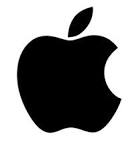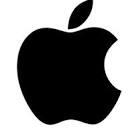Apple Inc (NASDAQ:AAPL) has been engaged in an antitrust case since 2006 and during a hearing on Thursday, 4th December, 2014, the matter pertaining to its software update was subjected to scrutiny. Courtesy of the software update, music from other networks would be barred from playing on Apple’s devices, thus limiting the choices of users. This created a stir amongst competitors who felt that the suave tech giant’s move was motivated to oust competition.
On being questioned, Eddy Cue, iTunes Chief at Apple Inc (NASDAQ:AAPL) replied that such a step had been taken with a view to upgrade security of the system. Tunes borrowed from other systems often brought with them bugs and potential hackers both of which could cause serious damage. He reminisced about Steve Jobs, saying that –
“Steve was mighty upset with me and the team whenever we got hacked. If a hack happened, we had to remedy that hack within a certain time period or they [the record labels] would remove all their music from the store.”
Eddy Cue, who according to CNBC’s Josh Lipton comes forth as direct, approachable and down-to-earth individual, went on to point out the various ways in which such a move could benefit consumers. Referring to the Apple eco-system, he pointed out that software updates had been put in place for maintaining the compatibility of devices since it took a closed system such as this to function without a hitch.
On the flip side, plaintiffs argue that Apple Inc (NASDAQ:AAPL) deliberately updated its software on a frequent basis so as to wipe out competition and establish itself as the unchallenged leader. RealNetworks was quoted as being one of the companies whom Apple had alienated through this law. Providing an unbiased judgment on the issue is an antitrust expert who teaches at Boston College Law School, David Olson through his following comment –
“The plaintiffs in this case are making one of the most aggressive arguments that is available in antitrust law — that a company can actually have a duty to allow rivals to use that company’s property. Obviously the court cannot change the past, but if it finds that Apple did have a duty to deal with rivals and violated it by locking them out, then plaintiffs can be awarded damages up to three times the amount of the injury.”
With high-profile executives from Apple Inc (NASDAQ:AAPL) being called in before the jury, it is anyone’s guess as to which way the lawsuit will swing.
This article has been written by Vinita Basu.
Apple Inc. (AAPL) Late CEO Steve Jobs Led the Company to Violate Antitrust Laws



